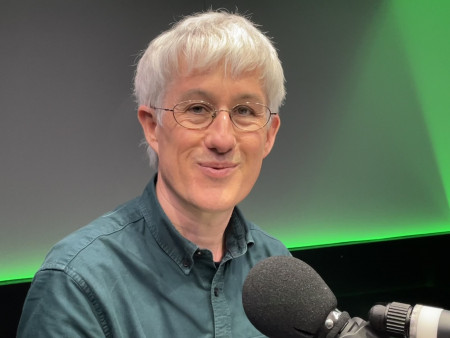
Dr Magnus Ramage
Senior Lecturer In Information Systems
School of Computing & Communications
Biography
Professional biography
I have worked at the OU since 2000, always on teaching and research relating to aspects of systems thinking, always in academic roles (lecturer and senior lecturer), and always based in the same office. I have been blessed to work with some brilliant colleagues and in an institution with a real commitment to high-quality learning and social inclusion. It is this sense of mission that makes the OU special. Through that time I've been formally located in a changing set of departments and faculties due to successive reorganisations.
I have worked for several years on EDI (equality, diversity and inclusion) projects for the School of Computing & Communications, with a particular focus on equality/justice work around gender and ethnicity, both through Athena Swan and through our current work on awarding gaps. I led the successful Athena Swan Silver award submission in 2021 and was school EDI lead for several years. I have been an elected member of the university Senate since 2014, and have been elected to the university Council (as a Senate representative) from August 2025.
I hold a PhD from Lancaster University in Information Systems.
Teaching interests
I am module chair of TM353 IT Systems: Planning for Success (first presentation October 2015); and production co-chair of TM342 Investigating intelligence and ethics (working title, first presentation February 2029), part of the new Computer Science with Artificial Intelligence qualification.
Author and/or chair on several previous modules on information systems and systems thinking, including TBXY873 Co-designing interventions with systems thinking in practice, TB872 Managing change with systems thinking in practice, TM255 Communications & Information Technology, T219 Environmental Systems 1, T215 Communications & Information Technology, T853 Information Systems Legacy & Evolution and T205 Systems Thinking: Principles and Practice (chaired T853 in production & presentation, T205 in presentation).
A number of these modules have drawn upon my past research and/or fed into scholarship projects.
Research & scholarship interests
I carry out research on a number of related areas: the history of cybernetics and systems thinking; decolonial and critical approaches to systems thinking and computing; the nature of information; and online collaboration.
My recent research and scholarship has been to take a critical lens on two different strands of my interests: the decolonising of Computing & IT education, as part of a substantial project which in particular had a large survey of students in our school (in a team led by Mustafa Ali and in which I worked closely with Zoe Tompkins on survey data); and looking at what it means to conduct systems thinking from the margins, in work with Rupesh Shah arising from our teaching in TBXY873, which is work in progress.
My research on the history of cybernetics and systems takes a biographical form: my colleague Karen Shipp and I led a project to identify and discuss 30 key thinkers in the field of systems. We read their work thoroughly, and secondary sources about their lives and work, and synthesised the results in a book, Systems Thinkers, that forms a collective biography of the field. We subsequently revised the book thoroughly (while keeping to the same 30 thinkers) for a second edition.
For ten years, I co-chaired The Difference that Makes a Difference (DTMD), a series of workshops from 2007-2017 on the way different academic disciplines understand of information, which drew in scholars from social science, technology, physical science, philosophy and art, and led to a number of edited publications. Since 2017 the research group which grew out of this work has been known as the Critical Information Studies group, with a focus on taking a critical approach to information artefacts and their impact on society, through perspectives of race, gender, class, politics and others.
I have combined these two broad areas of interest in a number of publications looking at the links between cybernetics and information, enhanced by my work for four years (2012-2016) as editor-in-chief of the long-standing international journal Kybernetes.
My PhD topic was the evaluation of collaborative information systems, within the broad field of Computer-Supported Cooperative Work. I have also carried out action research on tools for scenario planning in groups and organisations.
Publications
Book
Systems Thinkers (2nd edition) (2020)
Perspectives on Information (2011)
Book Chapter
Competing models of information in the history of cybernetics (2011)
Communities of practice – real and virtual (2010)
Evaluating collaborative technologies: a simple method (2010)
Journal Article
The usage of best practices and procedures in the database community (2015)
Editorial: Living in a time of change (2013)
Introduction: The difference that makes a difference (2012)
On the design of systems-oriented university curricula (2009)
Norbert and Gregory: Two strands of cybernetics (2009)
On boundaries and disciplines: constructing a set of key systems thinkers (2006)
Rapid institutional appraisal (2001)
So what's a metaproject for? (2001)
Technology choice at CallCentre (2001)
Evaluating groupware support for software engineering students (2001)
Presentation / Conference
Meaning, Selection & Narrative: The Information We See and the Information We Don’t (2017)
Religion, Information and Ritual: Understanding Difference in a Sacred Context (2017)
Cyberneticists at war and peace: wrestling with ethical dilemmas of information (2015)
Teaching software systems thinking at The Open University (2015)
Overlapping and Information Systems in Microcredit: a Bangladesh perspective (2011)